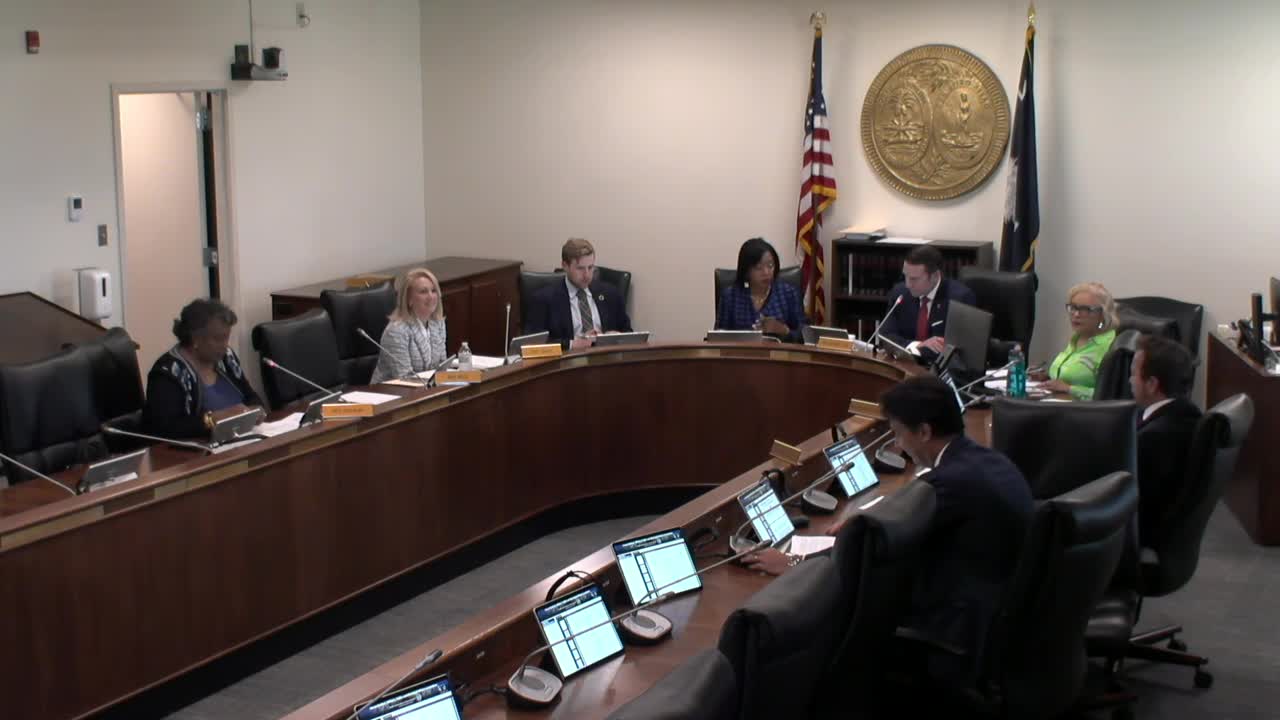Bill would extend in-state tuition waiver to children born and raised in South Carolina whose wartime veteran parent later leaves the state
Get AI-powered insights, summaries, and transcripts
Subscribe
Summary
A House subcommittee heard testimony on House Bill 3,453, sponsored by Rep. Seth Rose, which would allow a child of a wartime veteran to receive free tuition at state-supported institutions if the child has been a South Carolina resident since birth. The committee paused debate to gather more data before taking final action.
Representative Bobby Cox, chair of the subcommittee on veterans and military affairs, opened discussion on House Bill 3,453, sponsored by Representative Seth Rose. The bill would allow a child of a wartime veteran to receive free tuition to any state-supported college, university or post-high-school technical school if the child "has been a resident of the state since birth," according to the bill summary presented to the subcommittee.
The bill sponsor, Representative Seth Rose, described a case he said motivated the proposal: two daughters born and raised in South Carolina whose father received a Purple Heart and later moved out of state after developing post-traumatic stress. "It's not just the veteran who suffers when they become, when they have a mental injury from serving in the armed forces and they're wounded in action, it's the entire family," Rose said, arguing that the children had also been affected by their parent's service.
An agency official who testified, identified in the hearing as Secretary McCaffrey, told the subcommittee the implementing agency is neutral on the bill but offered implementation details and scale context. He said the agency processed 3,643 requests for tuition waivers last semester under the current law and that the majority of existing waivers are claimed by veterans rated 100% permanently and totally disabled by the Department of Veterans Affairs. "These are... this free tuition is a cost that's borne by the educational institution. There is no... funding involved," Secretary McCaffrey said, explaining that the waiver reduces tuition revenue for state institutions rather than being paid from a state appropriation.
Committee members asked about fiscal impact. Subcommittee staff provided an estimate in the meeting packet that aggregated tuition waived by the program across state institutions is about $18,000,000 (the speaker indicated uncertainty about whether that figure was for a semester or year). Secretary McCaffrey later referenced figures as "for the semester... approximately $18,000,000 and then approximately $37,000,000 for the academic year," and said the bill would likely add only a small number of additional beneficiaries beyond the current population but would require procedural verification steps by the agency.
Members expressed differing views about whether eligibility should be broader. Representative Joe White asked why the expansion would limit eligibility to children born in the state rather than length-of-residency thresholds; Representative Rose and the implementing official explained the bill was drafted to draw a nexus between South Carolina taxpayers and children with lifelong ties to the state. Subcommittee Chair Bobby Cox said the committee would do additional research and outreach to colleges and universities and indicated an intent to pursue broader options in future drafting.
Procedural action: Representative Celeste Davis moved to adjourn debate on HB 3453; the motion was seconded and the committee paused further action on the bill pending additional research and outreach.
Ending: Committee members said they plan to return to the measure after gathering additional fiscal and policy details, including outreach to institutions and further analysis of the marginal number of additional eligible students the change would create.
